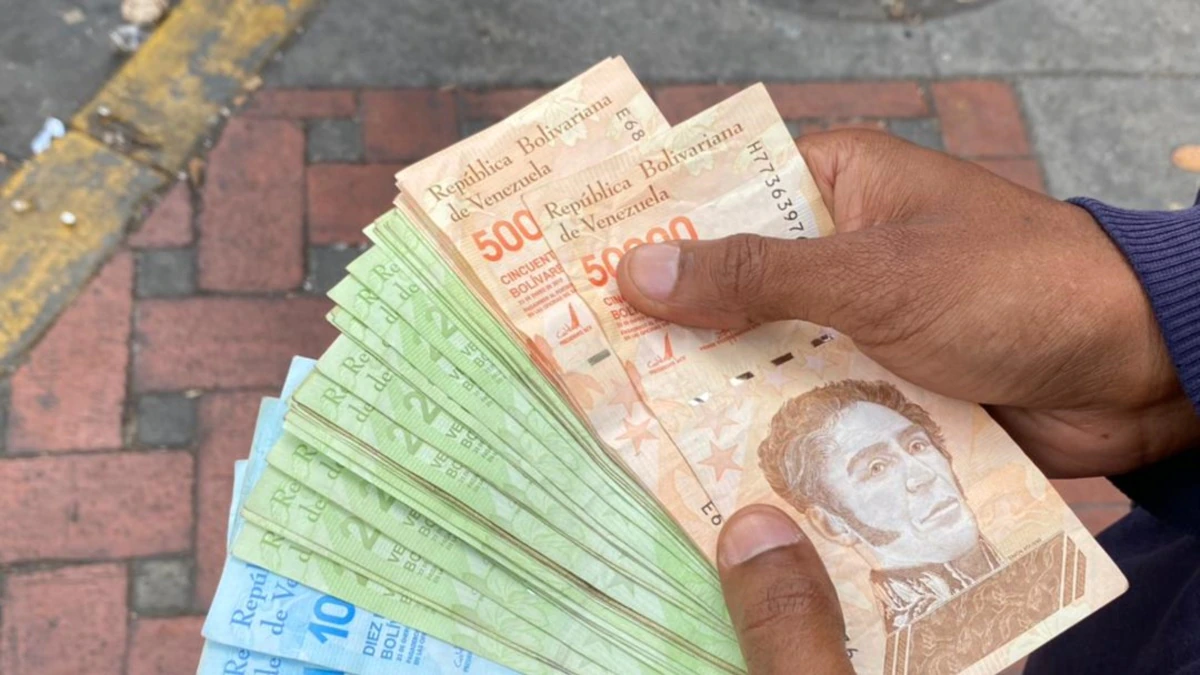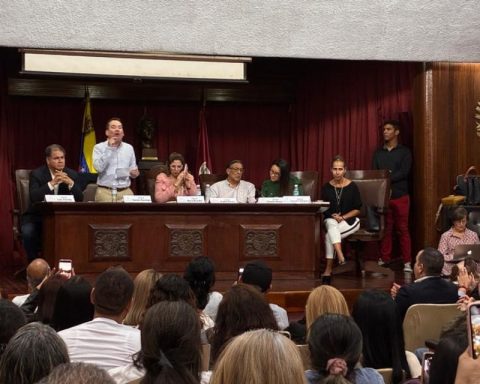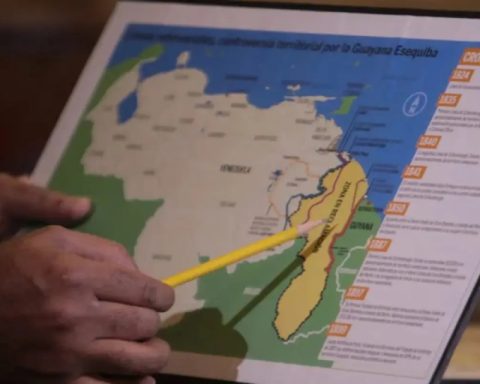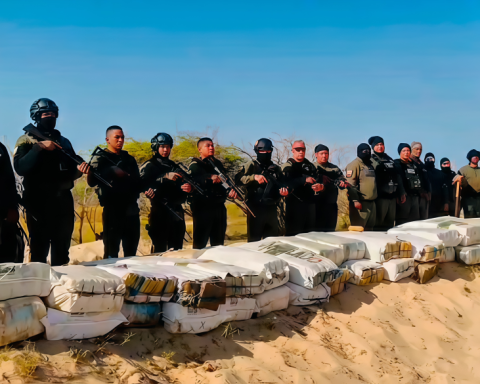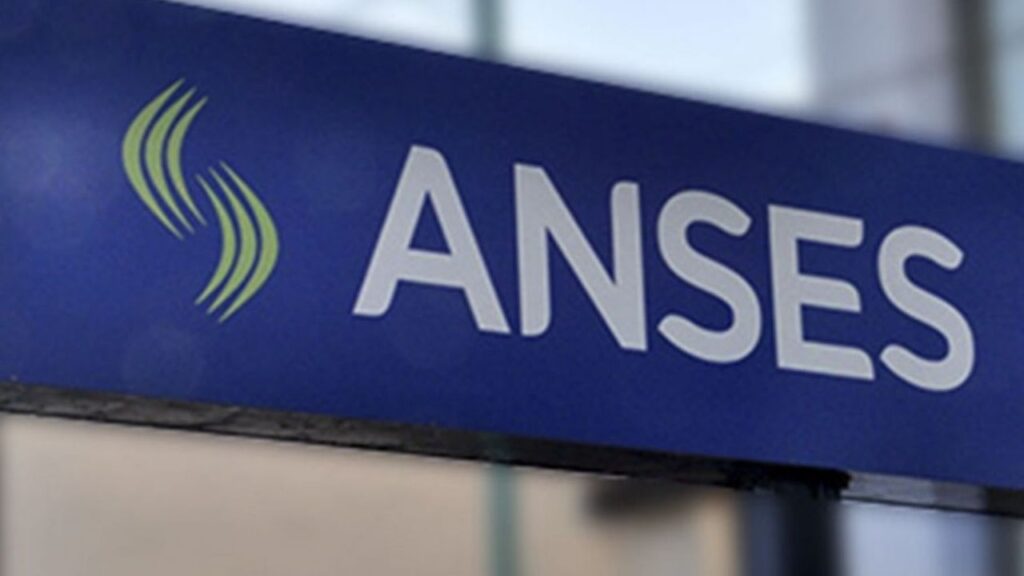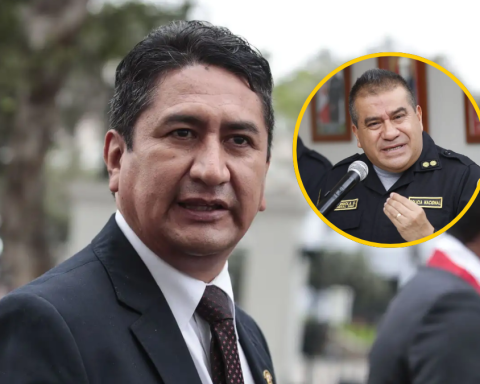The new tax on transactions involving payments with foreign currency in Venezuela, between 2.5 and 20%, generates uncertainty for people and “operational risk” for merchants, in addition to masking an increase in the Value Added Tax (VAT), according to experts.
The levy went into effect on Monday. Chavismo, which dominates the Parliament elected in 2020 under criticism and allegations of fraud from the opposition, approved in February a reform of the tax law on large financial transactions and established that payments with foreign currency and cryptocurrencies be charged with an additional percentage of 16 % of the total amount of VAT that was already applied in Venezuela.
The bench that supports President Nicolás Maduro defends this tax as a way for the State to receive dollars, euros and foreign currency from “the rich and the big merchants” of the country, spokesmen for the ruling party have reiterated.
Its launch this week raised doubts, such as what happens if a client pays both with bolivars and dollars or who is considered a special taxpayer, obliged to collect that tax, according to that regulation.
Leonardo Buniak, economist and expert in the Venezuelan banking sector, explains to the voice of america that the collection of the tax materializes without the majority of businesses and service companies being prepared for it.
“The fiscal machines to do billing, accounting and everything administrative (in companies) are not ready,” he warns. According to Buniak, the tax generates “a serious problem of operational risk” that, in the end, will translate into “very expensive fines” for businessmen.
People avoid paying in foreign currency, deepening the black market.
The Venezuelan government ignored the calls from leaders of the private sector, such as banking and commerce, to postpone the entry into force of the tax on payments with foreign currency and cryptocurrencies throughout the country.
That tax decision has generated “a lot of discomfort in the population,” according to Buniak. About 70% of commercial transactions in Venezuela are carried out with foreign currency, both in cash and by transfer, according to economic firms.
“People avoid paying in foreign currency, deepening the black market in dollars and with a private sector going towards a kind of informality,” says the specialist, who observes a “disguised” increase in VAT.
“It is not a tax for financial transactions, exempt both in deposits and in withdrawals of foreign currency in banks, but it is a tax on value added in transactions. It is VAT in disguise,” he says.
senseless confusion
A press release from the Ministry of Economy, Finance and Foreign Trade explained that the maximum tax of 20% is calculated for those who fail to pay 16% VAT, 3% tax on large transactions and patent amounts, through the use of gateways. of payments or digital wallets, without invoices.
According to Orlando Camacho, deputy and first vice president of the Finance Commission of the National Assembly, the new norm “started with 3%.”
There were businesses that momentarily prohibited their customers from paying for their goods and products with dollars or other foreign currencies. Others showed “ignorance” while misinformation reigns regarding the subject, describes the financial analyst and director of Econometrics, Henkel García.
“There are many who do not know how to collect it. Also, there are some with initiatives to evade the tax”, mentions García in conversation with the VOA.
He considers that the new tax adds to the list of economic measures of the Venezuelan government that, in recent years, have caused confusion to the people.
There are many foreign exchange transactions that do not contribute money to the treasury.
Last year, the national executive power completed its third monetary reconversion by subtracting six zeros from the nominal value of the bolivar. This year, economists and the government itself confirmed that Venezuela has emerged from a hyperinflationary cycle that lasted four years, a record in South America.
García believes that the impact of the new tribute has been limited and values that its real effect will be evident in the coming weeks, instead.
In his opinion, the measure “does not make much sense” and only seeks to coerce the Venezuelan to prefer to use the bolivar instead of foreign currency. “It’s detrimental to the people,” he says, noting that a “healthy and transparent” way to generate more tax revenue would have been to increase the VAT rate.
“It was less cumbersome. This measure is very full of noise”, indicates García. Buniak, for his part, considers that the application of the tax is “negative”. For him, the government of Nicolás Maduro must seek a consensus with private sectors, such as the main business organization in the country, Fedecamaras.
Thus, he believes, a new concerted tax may be viable to the extent that its consequences and the payment capacities of the general population are evaluated.
Buniak believes that an agreement with the national government would avoid any “regressive” effect on what he calls “an economic recovery process.”
This week, the Venezuelan Association of Tax Law (AVDT) criticized the reform of the tax law, calling it “inopportune and impertinent.”
“The neediest and least resourced people will be taxed when they make an effective payment in foreign currency, regardless of the amount, to any special taxpayer, which constitutes a contradiction,” the organization said.
Connect with the Voice of America! Subscribe to our channel Youtube and turn on notifications, or follow us on social media: Facebook, Twitter and Instagram.
